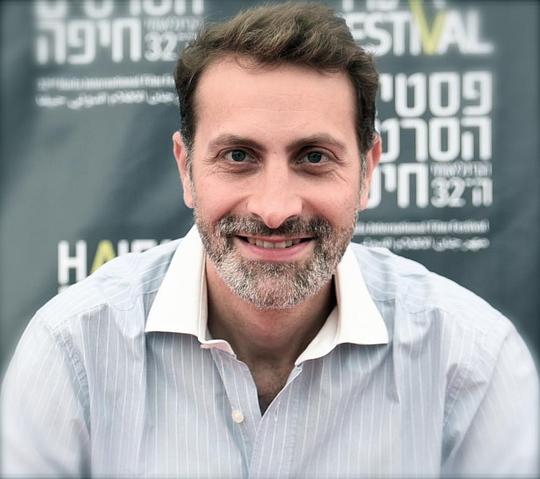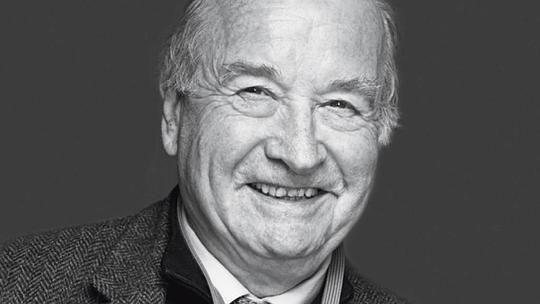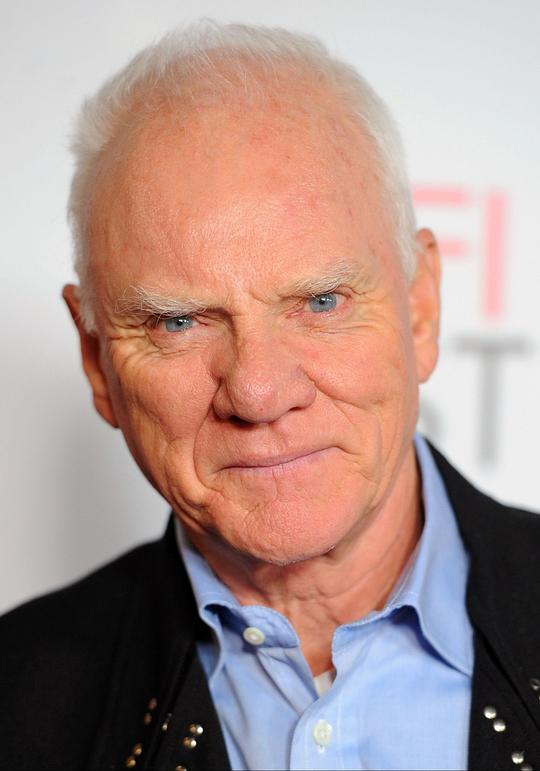库布里克谈库布里克 Kubrick par Kubrick(2020)

又名: 寇比力克如是说(港) / 库布里克论库布里克 / Kubrick by Kubrick
导演: 格雷戈瑞·门罗
编剧: 格雷戈瑞·门罗
主演: 斯坦利·库布里克 米歇尔·西蒙 马尔科姆·麦克道威尔 杰克·尼科尔森 谢莉·杜瓦尔 斯特林·海登 亚瑟·克拉克 马里莎·贝伦森 李·厄米 文森特·多诺费奥 彼得·塞勒斯 加勒特·布朗 肯·亚当 利奥纳德·罗森曼 汤姆·克鲁斯 妮可·基德曼 克里斯蒂安妮·库布里克 罗杰·伊伯特 柯克·道格拉斯 苏·莱恩 詹姆斯·梅森
类型: 纪录片
上映日期: 2020-04-12(法国)
片长: 73分钟 IMDb: tt11905514 豆瓣评分:7.5 下载地址:迅雷下载
简介:
- 斯坦利·库布里克在电影史上留下了永远无法磨灭的印记。 他在电影制作领域的成就卓著,他的作品可以被称作最纯粹的艺术品,不断地被学生和其他电影大师拿来研究,试图从中解读出库布里克缄口不言的答案。虽然库布里克是有史以来最受关注的电影人之一,但直到现在,听库布里克说话的机会还是很少。本片收录了这位大师的珍贵的采访,其中包含哲学探讨、电影名作解析,配以拍摄现场的照片,深入解读库布里克独特的电影世界和魅力。
演员:
影评:
创建了图片档案,包括成千上万张图片,所有的服装都是对绘画的模仿,没有一件是创造出来的,让设计师来设计之前的东西是很愚蠢的。 先讨论角色,再讨论场景,最后讨论角色在场景里应有的样子,当到了现场,就要把剧本改成一个既符合现实又有趣的样子。 18:00,演员状态不好的时候,就一小段一小段拍,特写,别的一些什么,再切特写,循环往复。 用拿破仑行军中精确的细节来比喻导演,有满足感而艰难枯燥。 二元性诞生角色矛盾 -亚历克斯一方面是邪恶的,一方面他的邪恶又是无意识的。 -杰克写作,一方面他想要有创造力,一方面他又想要自由,这是神经性诞生的根源。 杰克不喜欢自己,也不喜欢别人,最终变得神经质,成为旅馆幽灵们的奴仆,当他暴露在酒店邪恶力量的面前,超自然的东西就出现了,其他的因素都只是在帮助他做好准备,他成为满足他们愿望的奴仆。 迷宫似乎是对生活中许多事情的某种完美隐喻,迷宫里,所有人都在表达自己的建议,却又被相互的建议所误导,没有人知道该怎么办。 主题:无论怎样的时代,文明之下,存在着非理性,冲动,暴力,和人的动物本性。【库布里克矛盾冲突的根本。】这是生活在有意识和无意识之间的症结。 人们都有一个堕落的边缘,然而,大家对此有多坦诚却是另一回事。 把一个好故事拍成电影是种奇迹,而创造奇迹非常困难。
News just in, we've just heard that the film director Stanley Kubrick has died at the age of 70.
Kubrick, who was an American, began his career in Hollywood where he directed Spartacus but he decided to move to Britain where he directed Lolita, Clockwork Orange, 2001: A Space Odysey and The Shining.
Stanley Kubrick was widely regarded as one of the greatest and most controversial masters of cinema. He just finished what was to be his last film, Eyes Wide Shut which took five years to make.
Stanley Kubrick has been called the Howard Hughes of cinema because he was such a recluse. I prefer to think of him as the Frank Sinatra of cinema because he always did everthing in his way. You can go back to any Kubrick film and feel rebirth.
This filmmakeer only directed 13 films in 40 years. But each of them has been an event. This filmmaker has made the best epic film, the best science fiction film, the best film about urban violence, the best horror film, the best film about the Vietnam war.
Kubrick is at the very least a genuine innovator who pushes out the boundaries of what is possible on film and there have never been too many of those about. He is also an elusive man who rarely permits himself to be observed at work.
He was not any of the things that the newspapers wrote about him. And he himself said, "It's very difficult. How do I defend myself?" Do I write an article, you know, 'Dear public, I'm charming'?"
That's more difficult than it sounds, actually. Cause, you know, he never does a television, or very rarely does any press interviews.
The masterstroke is a succession of interviews that Michel Ciment had with Stanley Kubrick over time, over 10 years. It is brought to us in this book. I guess it wasn't an easy task to be adopted by Kubrik and to get close to a giant lik Kubrick.
Kubrick doesn't adopt anybody. He tolerated me or temporarily accepted me just for an interview. One cannot become Kubrick's intimate friend.
Where does your passion for Kubrick come from?
How come you're one of the few journalists in the world who got in touch with him? How did you do it?
He read an article I wrote about his work in 1968. It was the first major study in France. And when A Clockwork Orange came out, he granted me an interview for Express magazine. So I met with him in London.
Does he review what you write about him? Do you send him a copy?
He doesn't review what I write about him, he only reviews what he told me.
Well, perhaps the first question would be about this problem of interview because it seems that more and more you feel reluctant to speak about your films?
Well, I've never found it meaningful or even possible to talk about film aesthetics in terms of my own films. I also don't particularly enjoy the interviews because one always feels under the obligation to say some witty, brilliant summary of the intentions of the films. And with Dr. Strangelove, you could talk about the problems of Nuclear War, 2001 you could talk about extraterrestrial intelligence, but I've never been able......
Clockwork Orange about violence.
Yes, or future, social structures. I mean, I don't know what led me to make any of the films, really, that I made. And I realised that my own thought processes are very hard to define, in terms of, you know, what story do you want to make into a film. In the end, you know, it does become this very indefinable thing like why do you find one particular girl attractive or why did you marry your wife.
Yes, and also, I suppose it is more difficult for you to analyse yourself because the material comes from somebody else. So, it's more difficult to see the personal reasons that were behind it since you didn't write it yourself. But obviously the choice of the subject is a very personal thing, because you can choose from thousands of books and you choose one. You become the author of the book in a way by choosing it.
Well, if somebody else has sritten the story, you have the one great first reading. You never again, once you read something for the first time, can ever have that experience, and the judgment of the narrative and the sense of excitement of what parts of the story reach you emotionally, is something wihch doesn't exist if you write a story.
We know, I mean, everybody knows, its’s notorious that you love to accumulate information, do researches. I mean, is it a thrill for you? I mean, like being a reporter or a detective? It is a little bit like a detective looking for clues. On Barry Lyndon, I created a picture file of thousands of drawings and paintings. I think I’ ve destroyed every art book that you can buy in a bookshop by tearing the pages out, sorting them out. But the costumes were all copied from paintings. I mean, none of the costumes were, quote, “designed”. It’s stupid to have a, quote, a “designer” interpret the 18th century as they may remember it from art school or from a few pictures they get together.
Would you agree that the more illusion works the more realistic it is? The cinema has to extremely realistic, you know, to create illusion?
Well, I would always be attracted to something which offered interesting visual possibilities, but that certainly wouldn’t be the only reason. And, since part of the problem of any story is to make you believe what you are seeing, certainly getting a realistic atmosphere, especially if it’s not a contemporary period, is just necessary as a starting point.
It’s why you came to this idea of shooting with light, natural light.
Well, that’s something that I’ve always been very bothered by in period films, is the light on interiors. It’s so false.
It was very different to any kind of other movies as far as photography was concerned, because the lightning was so... you know, lots of it were shot by candlelight, a lot of it was shot with equipment that Stanley Kubrick had found, that had never been used before on any other films. So it was quite an experience working with that. It was also quite difficult because there were times when you just couldn’t even move a fraction of an inch. And there were days where we would sit there and just be lit all day. You know, literally.
Samuel, I’m going outside for a breath of air.
Yes, my lady, of course.
To know about lighting and lenses and composition has to be a help as a movie director.
I remember when I was making Spartacus, the cameraman, Russ Metty, used to think it was very funny that I sued to pick set-ups with a view finder, and he said to me, you know, “We’re shooting in that direction and it’s a knee figure shot, and just, you know, you go and rehearse with the actors and when you come back, we’ll have the shot and set-up and everything.” He couldn’t understand why I wanted to waste time making a composition. Certainly, photography gave me the first step where I could actually try to make a movie because without that, how could you make a movie by yourself if you didn’t know anything about photography?
What kind of photographs were you doing?
I mean, there is the famous photograhpy of the newspaper vendor and the Photojournalism with natural light. Mostly things of the street like Cartier Bresson.
Well, unfortunately, because Look always did feature stories, the subject matter always tended to be idiotic. They would do a story like “ Is an athlete stronger than a baby?” And I ould have to go and there’d be some guy that would have to try to get in the same positions as a baby and things like that. They would pretty stupid feature stories but occasionally I could do a sort of personality story, or a story about something like an universtiy or something like that where you had a chance to take some reasonable photographs.
You were four years at Look?
Yeah, about four years. I was about 20.
 Nude model from the Peter Arno feature in LOOK magazine by Stanley Kubrick. This image mirrors the shot of Nicole Kidman in "Eyes Wide Shut"
Nude model from the Peter Arno feature in LOOK magazine by Stanley Kubrick. This image mirrors the shot of Nicole Kidman in "Eyes Wide Shut"This forest then and all that happens now is outside history. Only the unchanging shapes of fear, and doubt and death are from our world. These soldiers that you see keep our language and our time but have no other country but the mind.
You started by making almost a home movie, when you are 23, Fear and Desire, about four men in a patrol. What was behind this project?
That was a very arrogant, flippant script put together by myself and a boy that I knew who was a poet, where we thought that we were geniuses, and it was so incompetently done and undramatic, and so pompous. But I learned a lesson from that. At least it had the ambition of having some ideas in it. And I suppose you could say in that sense, there’s some continuity with the rest of my films, which I also tried to make sure that they weren’t just hollow entertainments.
You get the feelings form you films, that the world is not only a stage but it’s a war because man is fighting all the time.
Well, in a work of fiction, you have to have conflict. If there isn’t a problem in a story, it can almost by definition not be a story. You know, how many happy marriages are there? And how many stepfathers love their stepsons? And how many stepsons love their stepfather? And how often do people who have ambitions which only involve money, do they find it a satisfying accomplishment?
Corporal Barry. You are a gallant soldier and have evidently come of good stock. But you’re idle, dissolute and unpreincipled. You’ve done a great deal of harm to the men, and for all your talents and bravery, I’m sure you will come to no good.
原文地址:
无论是《斯坦利·库布里克的盒子》还是《回忆库布里克》,纪录片对斯坦利·库布里克的还原都是通过他说而展开的,库布里克是一个言说的中心,但是他自己几乎不发生,这个后期和媒体关系紧张甚至被解读为“隐居怪人”的电影人,到死都没有澄清这些误解,甚至于对库布里克来说,沉默就是最好的言说,“没人能成为库布里克的密友”。但是在格雷戈瑞·门罗的这部纪录片里,库布里克还是发声了,而且Kubrick by Kubrick构成了一种自我评说的结构,甚至形成了颇为罕见的“自我对话”。
实际上,这并不是库布里克主动发声澄清外界的误解,格雷戈瑞·门罗让库布里克发声,是因为有人让他打破了沉默。电影第一个镜头就是摄影机开机,然后是各大电视台播报1999年库布里克去世的消息,之后则是他的亲朋好友对他的回忆和缅怀。如此,电影之开场构筑的就是一个完全处在“他说”世界里的库布里克,它和真实的库布里克隔着一段距离。在他说之后,则是关于对话的开始,在库布里克生前,曾接受了法国人米歇尔·西蒙的采访,而且采访时间前后长达十年,为什么库布里克会打破不接受媒体采访的禁忌?因为在1968年的时候,米歇尔·西蒙发表了一片关于库布里克电影的研究文章,库布里克读到了这篇登载在《法国快报》上的评论,这是法国媒体第一篇关于库布里克的文章,或者他被西蒙其中的观点吸引,于是他同意在纽约和西蒙见面,从此拉开了他们长达十年的对话。
从他说到对话,这是库布里克向外界打破沉默的做法,但是西蒙对他的采访也只是停留在对话状态,因为话题是由西蒙提起,问题是由西蒙设计,库布里克只是作为一个回答者,在某种程度上西蒙作为引导者组织了对话,库布里克的回答当然并不是真正意义上的自述,更不是Kubrick by Kubrick的自我对话,但是这其中却能发现库布里克对电影非常有洞察力的观点,而这些观点或许有限组成了库布里克的“自述”:关于战争,关于创作,关于电影,关于人性……诸如此类的话题,库布里克在西蒙的引导下,也激发了他的表达欲,由此,这些话题也成为了理解库布里克和他电影的另一把钥匙——兹整理访谈内容,从中可以窥见另一个库布里克:
格雷戈瑞·门罗:首先关于采访本身的,因为你似乎越来越不愿意谈论自己的电影了。 斯坦利·库布里克:我从来都没觉得谈论自己电影中的电影美学有什么意义,我也并不喜欢接受采访。
格雷戈瑞·门罗:人们总觉得有必要对电影的意图做出一些诙谐又精彩的总结,比如《奇爱博士》,你可以谈论核战争的问题,《2001:太空漫游》则是讨论外太空智慧,《发条橙》是关于暴力的。 斯坦利·库布里克:我是说,我不知道是什么驱动我拍每一部电影的,而且我意识到我自己的思考过程是很难定义的。如果要说只是把什么故事拍成电影,到最后(电影)就会变成很难定义的东西。如果别人写了一个故事,你有了一个很棒的阅读初体验,在你读完第一遍之后,你就永远无法再次拥有那种体验,那种对其叙事的判断以及某段故事打动你的兴奋感。
格雷戈瑞·门罗:你喜爱积累信息、查阅资料的习惯人尽皆知,我想问的是,这会让你感到兴奋吗?有一种当记者或者侦探的感觉吗? 斯坦利·库布里克:确实有一点像侦探在搜集线索。在拍《巴里·林登》时,我创建了一个有上千幅绘画作品的图片文档,我感觉自己差不多破坏了所有能在书店买到的艺术书,因为我把书页撕下来分类整理。电影里的那些服装全是按照绘画仿制的,我是说,没有一件服装是所谓“设计”出来的。
格雷戈瑞·门罗:你同意虚构的东西越多就越真实的说法吗?电影需要非常真实才能制造虚幻? 斯坦利·库布里克:嗯,我总是被呈现出有意思的视觉可能性的事物所吸引,但那不会是唯一原因。而且任何故事的一部分任务,就是为了让你相信你所看到的。所以说,营造出一种现实主义的氛围,尤其当它并不是在当前时代背景下时是基本的、必要的。
格雷戈瑞·门罗:在你的电影中会有一种感觉,即真实的世界不只是一个舞台,更是一场战争。 斯坦利·库布里克:因为人们一直在战斗,一部小说必须要有冲突,如果故事里出现没有任何矛盾,从定义上来看,这都不能算是个故事。
格雷戈瑞·门罗:那演员呢?你是怎么指导演员的?你会和他们进行很多交流吗?你会让他们自己去感受还是会讲解给他们听? 斯坦利·库布里克:首先,我们会大概讨论一下角色,然后讨论场景,以及和角色讨论在某个场景里的真实感受,然后就到了很可怕的环节,就是在你要拍摄的地方,实地排练一个场景,这从来都是充满意外的,永远和你想得会不一样。剧本一般都会或多或少地改动,然后就到了一个很现实又很有意思的阶段,而到了这个节点之后,就变得相对轻松一些了。
格雷戈瑞·门罗:你是否认为战争片的问题就是要尽全力不将观众引导到战争中,不要给予他们一种间接的战争体验?但这难道不是一个导演的道德问题? 斯坦利·库布里克:当你在读战争幸存者的回忆录时,很多人在回忆那段时光时,会觉得那是他们生命里最伟大的时刻,所以显然,战争一定在某一方面是真正鼓舞人心和让人振奋的,以及这期间的战友情、忠诚感和勇气等等,参与其中的人回想起来,是会受到触动的。
格雷戈瑞·门罗:我认为你是一个创新者,我的意思是,你非常喜欢解构事物,但同时,你非常在意传统。 斯坦利·库布里克:我认为总结二十世纪艺术的失败,其中之一就是所有艺术形式都有一种对独创性的偏执,创新意味着将艺术向前推,但不是抛弃经典的形式,抛弃你所运用的艺术形式。我认为真正的艺术大爆发会在有人能终于解放叙事结构时到来。
关于《恐惧与欲望》:我和我认识的一个诗人创作了傲慢、轻率的剧本,那时我们觉得自己是天才,但这部电影完成度很低,不过至少有一些野心在里面。
关于《发条橙》的邪恶论:那与荣格学派的二元论相左,也就是利他和协作与排他和激进之间的对立。人们往往看不到自己的阴暗面,并且试图将恶具体化,人们只会认为自己是善的,而视其他人是软弱的或是邪恶的。我的意思是,人们总是无法真正直面阴暗面,对于艾利克斯来说,他一定清楚自己的二元性,清楚自己的弱点,这样才能成为正派的人,或是阻止最糟糕的人格和社会恶习的出现。
关于《发条橙》案的庭审:我认为这部电影之所以非常重要,是因为它所表达的正是人类选择的自由,这远比媒体和公众议论的那些耸人听闻的元素来得重要,除了那群试图证明《发条橙》是部邪恶电影的人,没有人相信有人会站在艾利克斯那一边。这只是在讲故事,所以才会从艾利克斯的感受和角度去表现这个人物。但是,在赏析电影的过程中,你可以认为电影表现出对艾利克斯的同情,但鉴于这是一出带有讽刺性的故事,而讽刺的本质,就是用阐述真相的方式来阐述真相的反面。我不认为任何有学识的人,甚至是普通人会觉得,你真的把艾利克斯当作英雄,这可能正是原著吸引我的地方,它描写了一个拥有奇怪二元性的人物,他有纯粹的恶,但又因为他的恶只是在潜意识的状态展现,这会让你产生警觉,反思自己人格中与他相似的部分。邪恶和正义的角色之中 人们通常更会被前者吸引,我想到了弥尔顿,因此《失乐园》会更加有趣。(格雷戈瑞·门罗插话:“与其在天堂为仆,不如在地狱为主。”)
关于导演:导演一部电影,如果想把它做好并不总是有趣的,因为你处在和他人的持续冲突中,如果你想把它做对,如果你很在乎它,这就绝对不是什么好玩的事情,它有时让人感到极大的满足,但也很辛苦,而且每个人都会有许多焦虑。
关于“奇迹”:把一个好故事拍成电影是一个奇迹,而创造奇迹非常困难。
关于死亡:有人发给我一篇写施尼茨勒的文章,他的死非常美好,他坐在那里,敲着打字机,他起来把这页纸给隔壁房间的人,然后就这样,跌倒在地,人生结束了。他没有生病,他就是工作,然后死亡。
Title: Kubrick by Kubrick
Year: 2020
Genre: Documentary
Country: France, Poland
Language: English, French
Director: Gregory Monro
Music: Vincent Théard
Cinematography: Radek Ladczuk
Editor: Philippe Baillon
Rating: 6.4/10

Gregory Monro’s featurette KUBRICK BY KUBRICK is made with the original sound of the interviews conducted by French film critic Michel Ciment (1938-2023), a rare feat as Kubrick is notoriously reluctant to accept interviews. So audience is vouchsafed the maestro’s original wording about his filmmaking process, carefully articulated with a lucidity that reflects his intelligence. But like Kubrick confesses, it is a mug’s game to transcribe one’s thoughts into mere words. As filmmakers do, what they have been thinking is all being put into the final product. Words can feel superfluous and even counter-productive once the film is there in its wholesomeness.
Additional footage of his home movies, past interviews of various collaborators, all attest Kubrick exacting methodology and a mastermind’s irrepressible need of controlling every aspect of his projects (like shooting the same scene ad nauseam to capture the elusive perfection, an unnerving practice which is seemingly inherited by David Fincher). All Kubrick’s main works are allotted their fair screen-time as his corpus isn’t a large one (a replica room of the one in 2001: A SPACE ODYSSEY, is the exhibition place of all his films) within its meager length of 73 minutes. If the film piques your interest, please seek out the seminal biography Ciment written and published in 1980, simply christened “Stanley Kubrick”.





